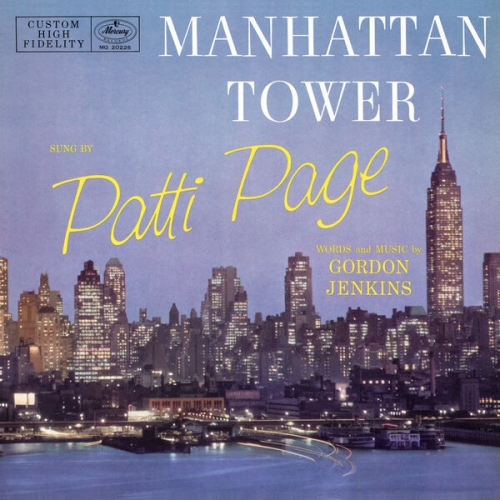Tigran Hamasyan Trio - New Era (2007)
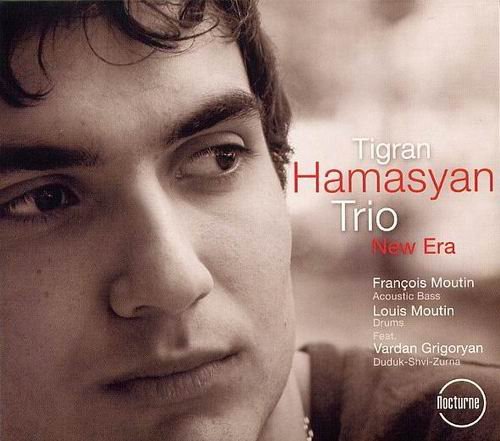
Artist: Tigran Hamasyan Trio
Title: New Era
Year Of Release: 2007
Label: Nocturne [NT98]
Genre: Jazz, Bop
Quality: FLAC (tracks + .cue,log,scans) | MP3/320 kbps
Total Time: 77:36
Total Size: 582 MB(+3%) | 183 MB(+3%)
WebSite: Album Preview
TracklistTitle: New Era
Year Of Release: 2007
Label: Nocturne [NT98]
Genre: Jazz, Bop
Quality: FLAC (tracks + .cue,log,scans) | MP3/320 kbps
Total Time: 77:36
Total Size: 582 MB(+3%) | 183 MB(+3%)
WebSite: Album Preview
01. Part 1 : Homesick (7:49)
02. Part 2 : New Era (5:50)
03. Leaving Paris (5:04)
04. Aparani Par (The Dance of Aparan) (11:53)
05. Well, you needn't (4:21)
06. Memories from Hankavan and now (7:56)
07. Gypsyology (9:49)
08. Zada es (You're an ill-fated girl) (10:05)
09. Solar (8:22)
10. Forgotten World (6:27)
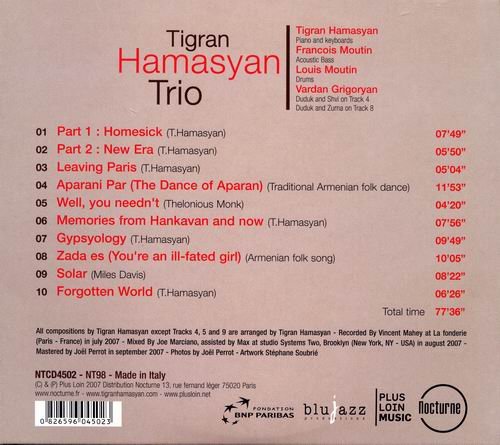
personnel :
Bass – François Moutin
Drums – Louis Moutin
Piano – Tigran Hamasyan
Duduk – Vardan Grigoryan (tracks: 4, 8)
Young Armenian born pianist Tigran Hamasyan is the next rising star in progressive and modern jazz piano, following paths of the bop innovator Bud Powell, post-Powell contemporary icon Chick Corea, and peer Eldar Djangirov. Brimming with talent so extreme it boils from his fingers, Hamasyan's second release as a leader displays all the power, chops, and verve one could want if you are into visceral, steam-powered jazz. Inspired by his bandmates, the twin Moutin brothers, Hamasyan paints an ethnic palate of music from his homeland mixed with witty fervor and no small sampling of sensitivity within measured parameters. Bassist François Moutin and drummer Louis Moutin are so dynamic, in tune with each other and virtuosic, it is Hamasyan who has to keep up, and he does it well. Most of the music here is composed by the leader, ranging from the technically busy and impatient "Homesick" and spacy, modal, up and down dynamics of the title track, to the fast bopper "Memories From Hankavan & Now," to the more melodic organ and piano based wandering 5/4 riffs of "Gypsyology." Two standards are re-phrased; "Well, You Needn't" sports a light contemporary reggae feel which displays distinct musicality, while "Solar" is quirky, with dizzying meter shifts and accents -- very unpredictable. Two other pieces are based on Armenian traditional or folk songs, noted by Hamasyan as outdated or not played much anymore. The 14 to 5/4 dervish dance of "Aparani Par" is a paean to harvest time, while the waltz "Zada Es" (for an ill-fated girl) has a siren singing quality. On these cuts, which can neatly fit into the Balkan, Middle Eastern, or ethnic fusion of recent times, guest Vardan Grigoryan plays exotic instruments as the duduk, shvi and zuma. This is an impressive debut, with certainly more to come, and with seasoning and a calming maturity not driven by merely showing off, Hamasyan is certain to elevate his art to a top tier of jazz and world music expressionism.~Michael G. Nastos

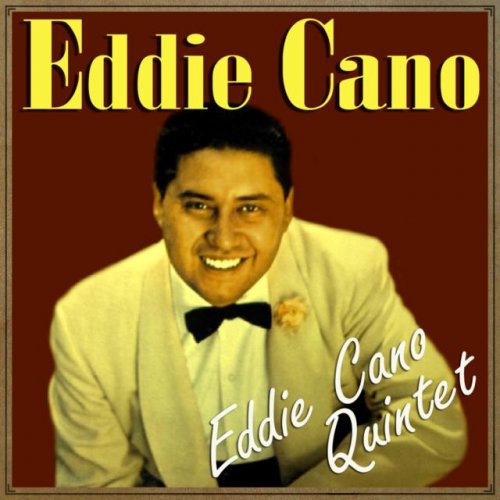
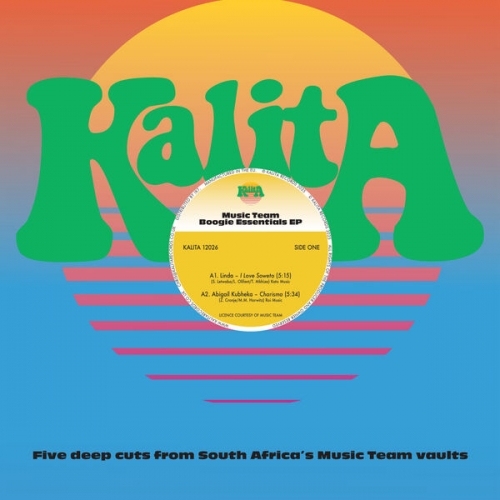
![Wes Montgomery - Full House (Remastered 2026 / Live At Tsubo / 1962) (1962) [Hi-Res] Wes Montgomery - Full House (Remastered 2026 / Live At Tsubo / 1962) (1962) [Hi-Res]](https://www.dibpic.com/uploads/posts/2026-02/1772124946_cover.jpg)
![Mateus Asato - ASATO (2026) [Hi-Res] Mateus Asato - ASATO (2026) [Hi-Res]](https://www.dibpic.com/uploads/posts/2026-02/1772112407_egqdz3e9dom2b_600.jpg)

![Sinedades - De par en par (2026) [Hi-Res] Sinedades - De par en par (2026) [Hi-Res]](https://img.israbox.com/img/2026-02/23/k9xyrl2p7m3kmcwozolhfnu7a.jpg)
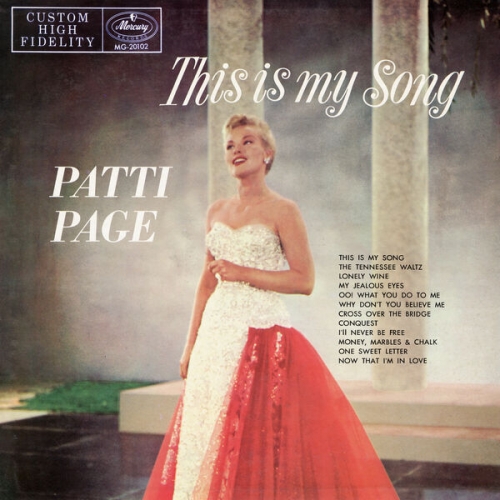
![Roberta Flack - Roberta Flack (2026 Remaster) [Hi-Res] Roberta Flack - Roberta Flack (2026 Remaster) [Hi-Res]](https://www.dibpic.com/uploads/posts/2026-02/1772098000_cover.png)
